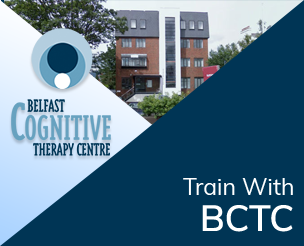Panic Disorder
Panic Disorder has 13 symptoms including trembling, dizziness, rapid heartbeat/ heart pounding, hot and cold sweats, feeling of throat closing, feeling unable to breathe, feeling unreal/ ‘spaced out.
Although the above symptoms are common they can be terrifying and people tend to fear the following:
- Dying
- Having a heart attack
- Going mad
- Losing control
- Collapsing
- Not being able to get a breath
Cognitive Behaviour Therapy has been empirically demonstrated to achieve a high success rate with panic. It is usually short term (4-8 sessions) unless the underlying cause began in childhood when is likely to take longer
Agoraphobia can be associated with panic in that it is fear of being in a situation where we believe that we cannot get to safety and therefore risk having a panic attack. Some examples are fear of open spaces, of being on a vehicle and being able to get off, lifts and even of going outdoors People with agoraphobia avoid feared situations and thereby feel less anxious. Unfortunately this avoidance doesn’t enable us to learn how to overcome the fear. As with panic, success rates are high.
Phobias
This is fear of an external object or situation such as a spiders, heights, flying etc but can also mean more unusual fears, such as fear of balloons, clowns, feathers – blood / injections – in fact phobia can be a terror of almost any external object or situation. Treatment is usually short term and success rates are also high.
Social Anxiety
Basically social anxiety is shyness, but shyness which is painful and incapacitating e.g. when being interviewed, on giving a presentation or on conducting a business meeting – to the point of having to endure panic, which is hugely distressing and even debilitating.
Having to attend parties or other social gatherings can result in acute anxiety – to the point of panic this is usually linked to fear of negative evaluation by others and a form of inner running commentary or ‘mind reading’ can occur e,g. We may think others are ridiculing us, deriding or sneering at us, resulting in acute anxiety. We also self focus I.e. we may imagine we look ridiculous in some way, it that we sound strange. This self focus heightens our anxiety and undermines our confidence.
Treatment using CBT is usually short term and successful. We believe however, that underlying maintaining causes, such as bullying, may need to be addressed in order for people to gain understanding and to learn additional methods to address maintaining factors, prior to a more long term recovery.
Generalised Anxiety Disorder (GAD)
GAD is characterised by worry – usually about one separate thing after another (a worry cycle). Worry can significantly impact on the quality of our lives and can result in depression. Causes tend to be linked to a feeling of vulnerability in childhood – perhaps parents were heavy drinkers or children suffered a form of emotional, physical or sexual abuse, or had to become carers at a very young age. There are many possible underlying causes and the cause may not seem apparent to you at first.
An individualised assessment of each BCTC client, known as a case formulation, is undertaken in order to pinpoint the underlying reasons. We then use a type of therapy known as meta cognitive therapy – empirically demonstrated to be increasingly successful.
Trauma/ Post Traumatic Stress Disorder (PTSD)
A trauma is defined as a threat to our lives e.g.a single incident trauma such as road traffic accident, rape, assault, medical emergency etc. (NB List solicitors who work with me as specialists in trauma compensation as partners).
‘Complex trauma’ occurs where the trauma has been endured for long periods of time such as spousal or sexual/ developmental abuse, torture, war, or sexual trafficking.
In our experience – and we have worked with many hundreds of traumatised individuals throughout the Northern Ireland ‘Troubles’) – trauma focused CBT and EMDR (Eye Movement Desensitisation and Reprocessing) are successful with single incident trauma and are recommended by the National Institute for Clinical Excellence (NICE) the advisory body which guides NHS best treatment and practice.
We have found that CBT and EMDR are less successful in work complex trauma. In working with complex trauma we therefore use CBT and EMDR, but also other treatment models including mindfulness meditation, Dialectical Behaviour Therapy, Schema Therapy and Compassion Focused Therapy.


